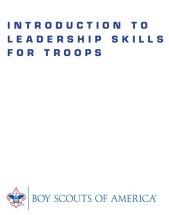 Each year, when we recharter, we may find that there are a handful of Scouts who, for various reasons, don’t return. Often, these are boys we haven’t seen active in some time; usually they are first-year members who crossed over the previous winter or spring, but sometimes they’re older boys who have been flying under the radar for some time and finally decide to quit. Continue reading “Why do Scouts leave?”
Each year, when we recharter, we may find that there are a handful of Scouts who, for various reasons, don’t return. Often, these are boys we haven’t seen active in some time; usually they are first-year members who crossed over the previous winter or spring, but sometimes they’re older boys who have been flying under the radar for some time and finally decide to quit. Continue reading “Why do Scouts leave?”
Get ready to recharter
 Each year, each and every part of the Boy Scouts of America must renew its charter, giving it authority to operate for another year. This applies to packs, troops, crews, districts, OA lodges, and even councils. The annual renewal process allows for an opportunity to review a unit’s performance over the previous year, review its membership and leadership, and re-commit to the ideals of Scouting so that we may serve the youth who have come to us seeking fun and adventure. Continue reading “Get ready to recharter”
Each year, each and every part of the Boy Scouts of America must renew its charter, giving it authority to operate for another year. This applies to packs, troops, crews, districts, OA lodges, and even councils. The annual renewal process allows for an opportunity to review a unit’s performance over the previous year, review its membership and leadership, and re-commit to the ideals of Scouting so that we may serve the youth who have come to us seeking fun and adventure. Continue reading “Get ready to recharter”
Introduction to Leadership Skills for Troops
 Training boy leaders is the Scoutmaster’s most important job, and that process has now been revised and updated in BSA’s new publication Introduction to Leadership Skills for Troops.
Training boy leaders is the Scoutmaster’s most important job, and that process has now been revised and updated in BSA’s new publication Introduction to Leadership Skills for Troops.
ILST, as it’s known in the acronym-crazy world of Scouting, succeeds Troop Leadership Training after only a few years in use, and improves on it in a number of ways. TLT, as you recall, took us away from the step-by-step training course that was provided to us in Junior Leader Training. Continue reading “Introduction to Leadership Skills for Troops”
For aged-out Scouts, a new option
 If your troop is like mine, you probably have had a few Scouts age out of youth membership and head off to college or military service. Most likely Life or Eagle Scouts, these young men still enjoy being active in the OA (where they are still youth members until they turn 21), and taking part in troop campouts, hikes, high adventure or other Scouting endeavors, but can no longer be a Scout in the Boy Scout program. Unless you had a Venturing crew closely associated with your troop, your only option to keep them active in your unit was for them to register as an assistant Scoutmaster. (They can’t register as a committee member until they turn 21.) Continue reading “For aged-out Scouts, a new option”
If your troop is like mine, you probably have had a few Scouts age out of youth membership and head off to college or military service. Most likely Life or Eagle Scouts, these young men still enjoy being active in the OA (where they are still youth members until they turn 21), and taking part in troop campouts, hikes, high adventure or other Scouting endeavors, but can no longer be a Scout in the Boy Scout program. Unless you had a Venturing crew closely associated with your troop, your only option to keep them active in your unit was for them to register as an assistant Scoutmaster. (They can’t register as a committee member until they turn 21.) Continue reading “For aged-out Scouts, a new option”
More advancement changes
 Here are a few other advancement-related items that have been changed or clarified in the recent Guide to Advancement that affect the troop committee:
Here are a few other advancement-related items that have been changed or clarified in the recent Guide to Advancement that affect the troop committee:
- If you’ve ever been caught short on a board of review night without enough committee members on hand, there is relief. The new rule allows for adults who aren’t registered committee members to serve on a BOR. Here’s the exact language: In units with fewer than three registered committee members available to serve, it is permissible to use knowledgeable parents (not those of the candidate) or other adults (registered or not) who understand Boy Scouting’s aims.Smaller troops may only have three registered committee members, and if the son of one of the committee members needs a board of review, it would otherwise be impossible, since parents can’t participate. This change would also seem to give troops with more committee members greater flexibility to assemble a board of review when we are unexpectedly overloaded with candidates, say during a troop meeting or on a campout. We really don’t want to turn away a Scout who only needs a BOR to advance for lack of registered committee members. They don’t define “available to serve”, so it could mean that while you may have many committee members, they might not all be able to make it to a board of review session. The catch here is that if you have knowledgeable parents or adults who understand Boy Scouting’s aims, they belong on the troop committee anyway, and if you find you need to press them into service, you should invite them to register. Continue reading “More advancement changes”

